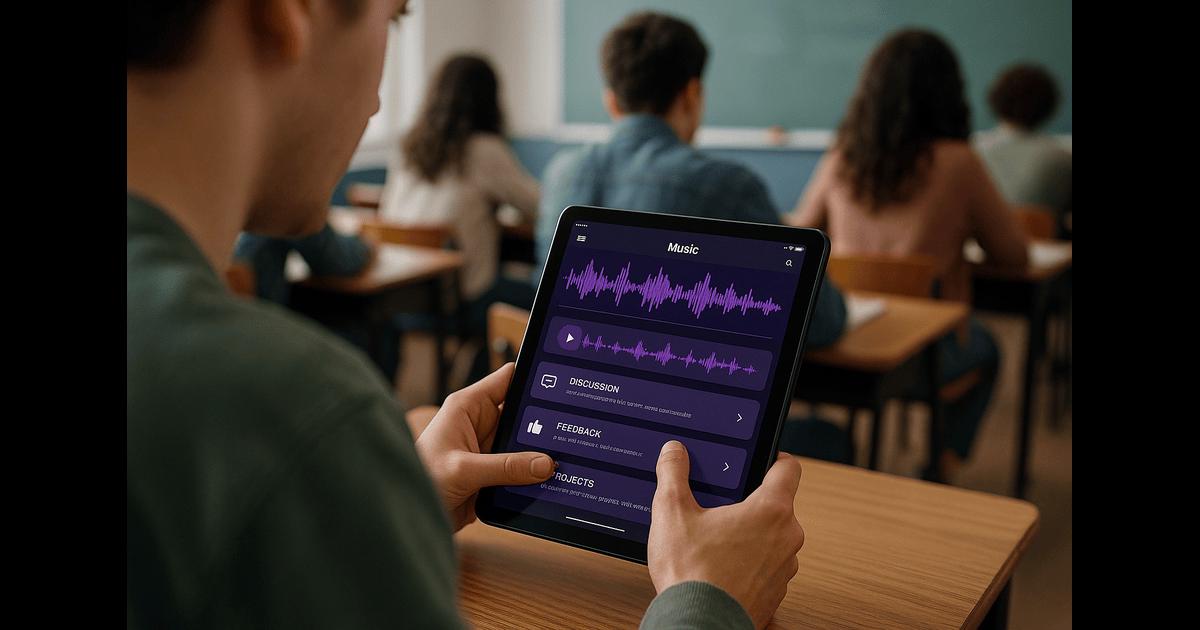Music Apps in the Classroom: New Tools for Learning
Today’s classrooms are changing, and music education is evolving with them. For students and teachers, mobile apps are becoming essential tools that enhance learning, practice, and creativity. Far from replacing traditional methods, these digital resources add flexibility and engagement to the learning process.
Many students rely on paper writing services online for help with assignments, but music apps are often overlooked as valuable tools for improving musical skills and supporting learning. This article highlights practical apps that help students learn music skills, understand theory, and collaborate, no matter their level.
Practice Apps That Make Progress Easier
Consistent practice is key to improving in music. Apps like Yousician offer step-by-step lessons for guitar, piano, bass, and ukulele, providing real-time feedback as students play. This helps correct mistakes early and keeps learners motivated.
To build rhythm and timing, Metronome by Soundbrenner is a classroom favorite. With adjustable tempo, visual cues, and even vibration features, it suits solo practice and group rehearsals alike.
Many teachers also use these apps to assign targeted practice routines that address each student’s specific challenges.
Learning Theory Through Interaction
Music theory can be challenging when taught through textbooks alone. Apps like Tenuto bring these concepts to life with interactive exercises. Students can practice intervals, chords, and scales at their own pace, turning theory into a hands-on experience.
For ear training and sight-singing, EarMaster is a reliable choice. It offers structured lessons that help students develop listening accuracy, supporting skills that are essential for performance and improvisation.
These interactive lessons make abstract theory more approachable, helping students connect it directly to their playing.
Encouraging Creativity with Composition Tools
Composition apps give students a chance to explore their creative side. GarageBand is a user-friendly option that lets students record, layer, and mix music using a variety of virtual instruments.
For sheet music creation and collaboration, Flat.io is especially useful. This app allows students to compose and share music in real time, with features that integrate smoothly with Google Classroom for easy assignment management.
By working on original compositions, students develop a deeper understanding of song structure and arrangement techniques.
Apps That Support Collaboration
Collaborative projects build teamwork and deepen understanding. Soundtrap by Spotify provides an online music studio where students can create and edit songs together, whether they are in the same room or working remotely.
SmartMusic is another valuable platform for classroom ensembles. It offers an extensive library of practice materials, assessment tools, and progress tracking, giving teachers a simple way to guide and support student growth.
These apps also allow students to give each other feedback, fostering peer learning and a stronger sense of community.
Tools for Inclusive Music Learning
Every student learns differently. Apps like Noteflight Learn are designed to support diverse learning needs, with features that allow students to compose and perform at their own pace. Its accessible design ensures all students can participate fully.
For students who benefit from slow-paced practice, Practice+ offers useful features like adjustable playback speed and loop functions. These tools give learners more control, making difficult pieces easier to master.
Such flexible tools are especially helpful for differentiated instruction, allowing teachers to meet varied learning styles.
Conclusion
Music apps offer practical ways to enhance learning for students and teaching for educators. From guided practice to theory drills, creative composition to group collaboration, these tools help make music education more effective and enjoyable. These digital tools also help bridge gaps in resources, offering affordable alternatives to traditional equipment and materials.
As technology continues to evolve, staying informed about new apps ensures that music education remains accessible and relevant for every student.
By bringing the right apps into the classroom, teachers can create richer learning experiences that support students’ musical development in meaningful, engaging ways.

Premium music analytics, unbeatable price: $19.90/month
11M+ artists, 100M+ songs, 19M+ playlists, 6K+ festivals and 100K+ labels on one platform, built for industry professionals.


